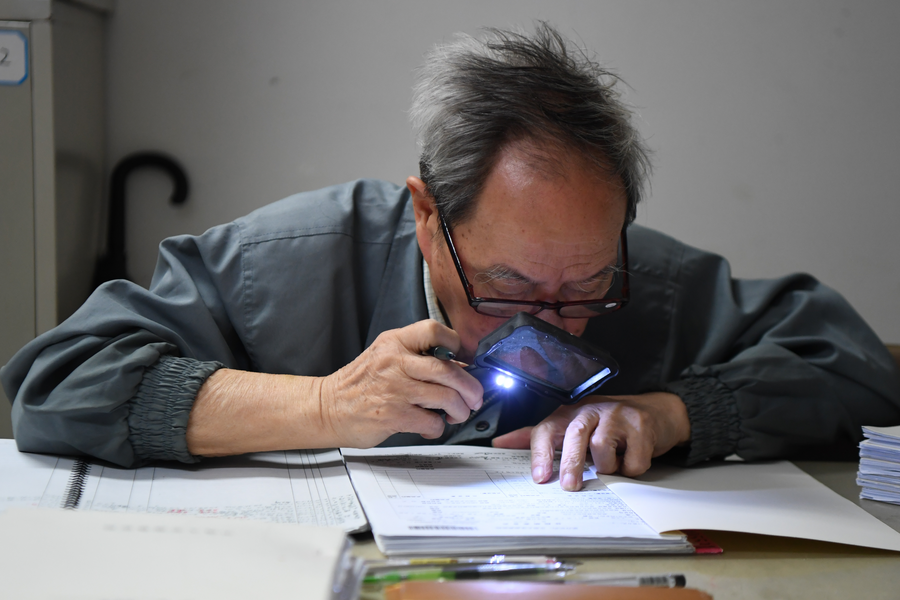
Yuan Mingdao writes medical records in Xiangya Hospital, Aug. 13, 2019. (Xue Yuge)
Before Yuan Mingdao, 90, retired as a doctor, he treated over 10,000 patients. After retirement, Yuan chose to work on the medical records. A total of 1.88 million medical records are kept in his hospital, it provides guidance for the younger generation of doctors.
CHANGSHA, Sept. 25 (Xinhua) -- Yuan Mingdao, 90, with a pen in his hand, is carefully compiling the medical records he has written over the past years.
Yuan, a doctor at Xiangya Hospital, Central South University in the city of Changsha, central China's Hunan Province, has been spending his time working on the medical records at the hospital after retirement.
At the age of 20, Yuan entered Xiangya School of Medicine, Central South University in 1949 when the People's Republic of China was founded.
He and his classmates who all had a dream of healing the wounded and rescuing the dying, took lessons, received training and wrote down treatment plans.
He then became a doctor at Xiangya Hospital and later led a team to re-establish the hospital's cardiothoracic surgery department in 1979.
"It was the most difficult time when we had no other cardiac surgeons except me," he said.
Before retirement, Yuan, with a scalpel in hand, treated over 10,000 patients. After retirement, he didn't leave, but with a pen in hand, chose to work on the medical records.
A total of 1.88 million medical records are kept in the hospital, which are important witnesses of China's medical development over the past 70 years.
The medical records compiled by Yuan are like a pocketbook that updates regularly. It provides guidance for the younger generation of doctors.

Yuan Mingdao writes medical records in Xiangya Hospital, Aug. 13, 2019. (Xue Yuge)
An operation on a five-year-old with congenital heart disease was considered extremely difficult, as recorded in the medical records of 1987. But seven years later, a heart transplant operation was carried out according to medical records written in 1994.
The medical records have kept the changes and progress of China's medical development, said Lei Guanghua, president of the hospital.
Today, the hospital uses electronic medical records that include the patient's operation notes, medical image information and biological sample information to make more targeted and accurate treatment plans for patients.
"If I can live to 100 years old, I will work on the medical records until that day," he said.■



